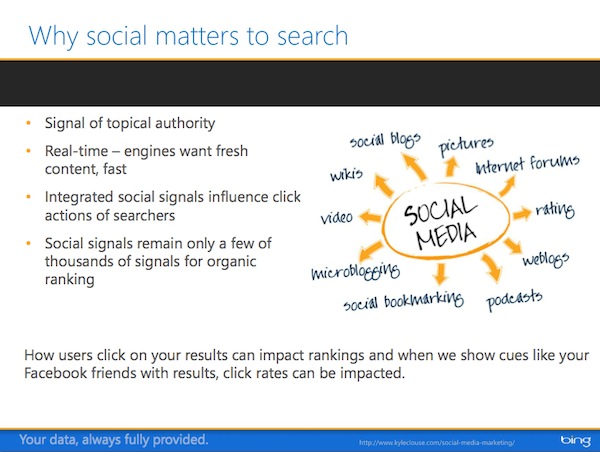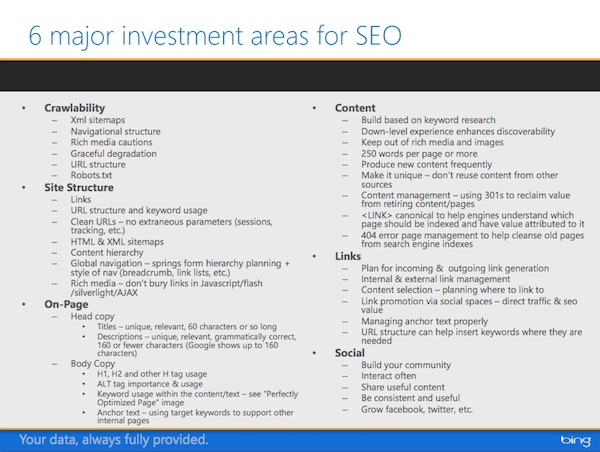This morning I caught up with Duane Forrester from Bing as he prepared to kick off the Reykjavik Internet Marketing Conference (RIMC), a two-day boot camp in Iceland featuring content focusing on search and social.
We discussed the overlap between social and search, and why social drives important signals that help determine rankings – with the key focus on understanding where search is heading, and how businesses can leverage many factors to win in the search “Game of Thrones“.
Andy Betts: Welcome to Iceland and RIMC. What attracted you to RIMC?
Duane Forrester: I’ve been hearing about RIMC for the past decade. How it brought together the best from Europe and North America to discuss digital marketing and improve business, so it’s been on my radar forever. Very excited to be here for the 10th anniversary event!
AB: How do you the new search and social space developing throughout the rest of the year. What is big on the Bing radar?
DF: Bing will continue to invest in social, expanding its relationships and use of data to help searchers find the best results, faster. Search should be about completing tasks faster, and Bing’s unique blend of visuals, social signals and web-sourced data brings together an ideal mix that searchers are very responsive to. Social, and the data it can provide, will continue to play a role moving forward.

AB: Much has been spoken about the relationship between search and social and influence on rank? How do you view this? Do social signals impact rank?
DF: Yes…and no. It’s not direct as in “so many RTs or Likes will boost rank.” It’s more indirect, like when a crowd of people all start talking about an item or product. Others get excited and follow along to see what the fuss is about. If you can get people excited about your product or service, that activity shows up socially. We can easily see this happen and come along to see what the fuss is about. If it looks like a quality product or service, we’ll want to show it to more and more searchers to see if it meets their needs.
AB: How can marketers best utilize Bing to leverage social media to help influence search rankings?
DF: Engage with their customers and visitors. Staying engaged builds a community around your brand, which attracts others. Superior customer service matters more now than ever online, and social is a way to provide that excellent service.
AB: What is most important – links or social signals? How does content tie into this?
DF: They are both important for their own reasons, and people shouldn’t try to seek shortcuts by focusing on one over the other. That said, if you build excellent, compelling content, build a solid social presences and provide an outstanding user experience, ultimately the links will find you. No need to go looking for them.
AB: How do you distinguish between good and bad content?
DF: Beyond all the technical back-end work we engage in, it’s relatively simple. If the content is engaging and answers a searchers question, it’s good stuff. Think of a topic. Now think of the most obvious questions related to the topic. Answer those. Now, step back, and think of the other, related questions, and answer those. It takes time to create useful content in this manner, but if you do it, searchers will start turning to you as an authority on the topic. After all, if you’ve anticipated their every need and answered questions they didn’t even realize they’d have, not only will they love you, but they’ll recommend you to others.

AB: Optimizing search and social across multiple international geographies can be a challenge for many marketers who want to dominate global search rankings. Do you have any tips on how best to optimize for Bing across multiple geographies?
DF: First off, make sure you have the lang tags (meta language tags) installed to tell us what language/region on the content on the page is targeting. After that, what works in one area works in others, so map out the content plan, the social engagement plan, etc. and start executing in each region. Keep in mind, however, that a social space that’s popular in one region may not be a big deal in another, so be sure to focus where your customers are. Search engines see the entirety of the internet, so we’ll see the public signals.
AB: Could you give me five best practices for optimizing for search and social?
DF: These are not specific to Bing, but are useful across all major engines:
- Build content that exceeds the searchers needs. Answer questions they didn’t even realize they’d have related to your product or service.
- Stay engaged socially. It might seem lonely, but people are listening and your engagement helps shape how they perceive your business
- Learn the best practices of SEO and apply them. They’re easily found in locations such as the Bing Webmaster Guidelines.
- User experience matters. if you have never done UX testing, make this the year to do it. It’ll unlock surprising changes you can make that will directly impact how users interact with your content, boosting their satisfaction.
- Experiment. Try new ways to engage with people socially and with new content. Track results. Did Twitter followers RT the funny tweet or the contrary tweet more? Did Facebook friends engage more when you took a slightly angry POV on a topic, or did they engage more neutral, fact-based version?

AB: Could you give me five “no-nos” for optimizing for search and social?
DF: Again, not applicable to one engine, but to all:
- Don’t cloak.
- Don’t rely on syndicated content to rank.
- Don’t link or like farms.
- Don’t produce thin content.
- Don’t forget to review your robots.txt file periodically – many sites block crawling which hurts indexing and ranking.
AB: What excites you most about Bing’s recent innovations/tools?
DF: The ability to help people get to the right results for them is expanding daily in large part to social. I’m still excited about the direction Bing is taking through its many open partnerships with industry leading social sites. I’m also keenly excited to watch the growth of mobile and how it is shaping the future of search. Gestures as search, voice search, real-time data overlays to show me what’s nearby – it’s all exciting for businesses.
AB: Any other tips you can share on getting ahead and staying ahead of the search and social curve in 2013?
DF: Get started on responsive design planning as part of your next website update. It’s a big step, but it’ll position you for the mobile growth underway. Today there are roughly 9 billion mobile devices in use globally. In 8 years that’ll be closer to 25 billion devices.
As Forrester puts it:
- Content is the reason
- Keyword research is a beacon
- Quality is your watch word
- Authority is your goal
- Niche is your starting point
- User experience is your religion
Are you ready?


